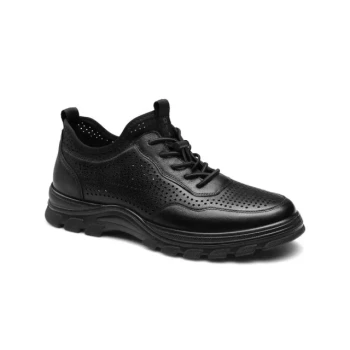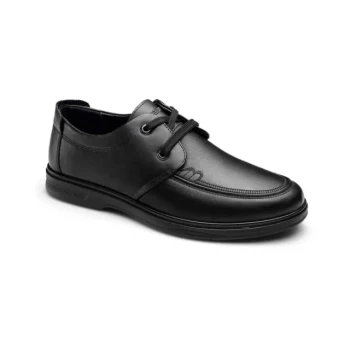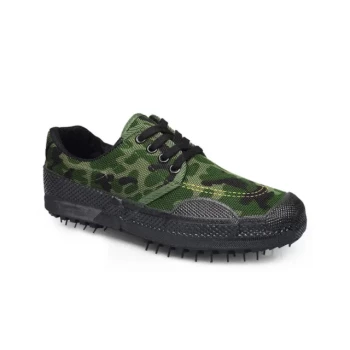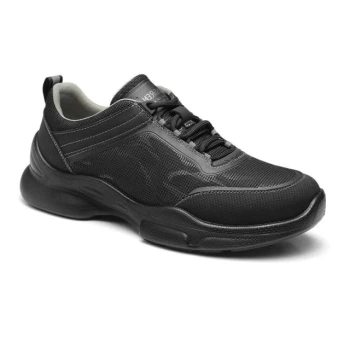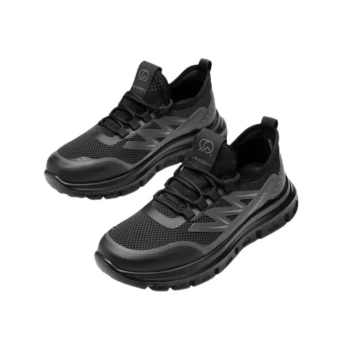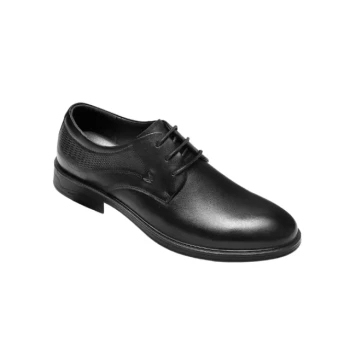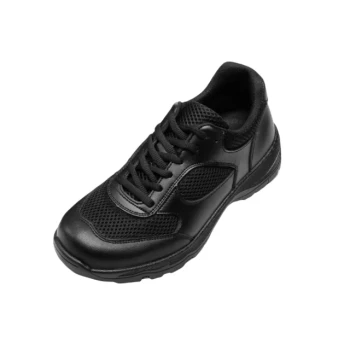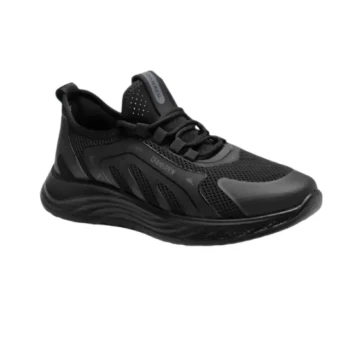In a direct comparison, artificial leather offers significant advantages in cost-effectiveness, durability, and resistance to water and chemicals. However, these benefits come at a direct cost to breathability and the ability to manage moisture, which are critical drawbacks in certain applications.
The choice between artificial and genuine leather is a classic engineering trade-off. You are essentially choosing between the predictable, manufactured consistency of a synthetic material and the natural, breathable comfort of an organic one.
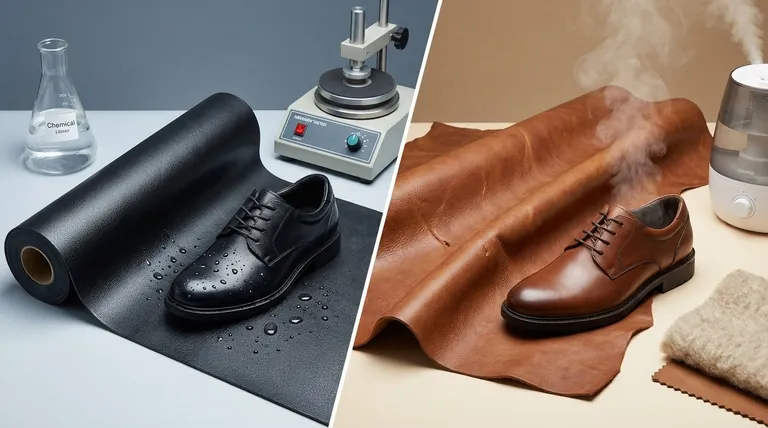
The Core Strengths of Artificial Leather
Artificial leather, a composite material made from a fabric base coated in synthetic resins, is engineered to excel where natural materials may fall short. Its properties make it a highly practical choice for specific uses.
Engineered for Durability and Resistance
The synthetic coating on artificial leather gives it impressive resilience. It is highly resistant to general wear, folding, and abrasion, maintaining its appearance over time. Furthermore, it stands up well against acids and alkalis, making it suitable for industrial or protective gear.
Superior Water Resistance
Unlike genuine leather, which can be damaged or stained by excessive moisture, artificial leather is fundamentally waterproof. This quality makes it an ideal material for products frequently exposed to the elements, such as certain types of footwear or bags.
Cost-Effectiveness and High Utilization
As a manufactured product, artificial leather is significantly cheaper to produce than genuine leather. It can be created in uniform rolls, leading to very high material utilization and minimal waste during the manufacturing process, a key advantage in large-scale production.
Visual Consistency and Variety
Artificial leather provides a perfectly uniform appearance, free from the natural blemishes found in animal hides. It can be produced in a virtually unlimited range of colors, textures, and finishes, offering designers immense creative freedom.
Understanding the Trade-offs and Limitations
The engineered nature of artificial leather also creates its primary disadvantages. These limitations are not failures of the material but inherent properties of its plastic-based composition.
The Critical Lack of Breathability
The most significant drawback of artificial leather is its poor breathability. The plastic coating that makes it waterproof also creates a non-porous barrier, trapping air and moisture against the skin.
Consequence: Odor and Comfort Issues
This lack of airflow directly leads to the buildup of sweat and moisture. For items worn for extended periods, like boots or jackets, this can quickly result in odor issues and a clammy, uncomfortable feeling for the wearer.
Reduced Hygroscopicity
Hygroscopicity is the ability of a material to absorb moisture from the air. Artificial leather has very low hygroscopicity, meaning it does not pull moisture away from the body, compounding the discomfort caused by its poor breathability. For this reason, it's often better suited for short-duration use.
Making the Right Choice for Your Needs
Selecting the appropriate material depends entirely on the intended application and your primary goal for the product.
- If your primary focus is cost and weather resistance: Artificial leather is an excellent choice for items that need to be durable and waterproof without a high price tag.
- If your primary focus is comfort for all-day wear: The lack of breathability makes artificial leather a poor choice for footwear or clothing intended for continuous use.
- If your primary focus is industrial or safety applications: Its high resistance to chemicals and abrasion makes it a superior material for items like corrosion-resistant safety shoes.
Ultimately, understanding these core functional differences allows you to select the right material for the right purpose, ensuring performance aligns with your expectations.
Summary Table:
| Aspect | Artificial Leather | Genuine Leather |
|---|---|---|
| Cost | Lower, more cost-effective | Higher, premium price |
| Durability & Resistance | High resistance to abrasion, water, and chemicals | Naturally durable but can be damaged by moisture |
| Breathability & Comfort | Low, can trap moisture and cause odor | High, breathable and comfortable for extended wear |
| Appearance & Variety | High consistency, wide range of colors and textures | Unique, natural grain with inherent variations |
Need Help Selecting the Right Material for Your Footwear Line?
As a large-scale manufacturer, 3515 produces a comprehensive range of footwear for distributors, brand owners, and bulk clients. Our production capabilities encompass all types of shoes and boots, and our material experts can guide you in choosing between artificial leather, genuine leather, or other synthetics to perfectly balance cost, durability, and wearer comfort for your specific market.
Let's collaborate to create high-performance footwear that meets your exact specifications.
Contact our team today for a consultation
Visual Guide
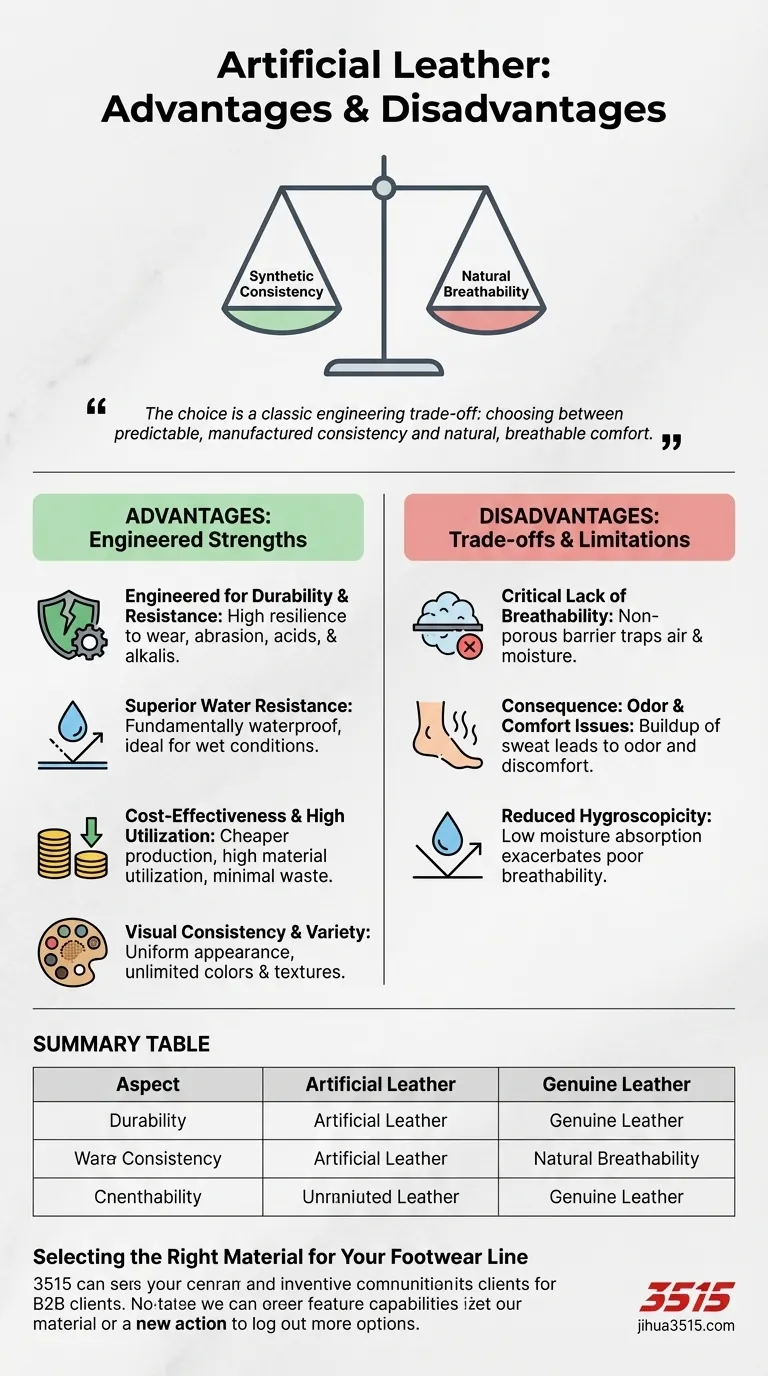
Related Products
- Classic Leather Derby Dress Shoes Wholesale & Custom Manufacturing
- Custom Manufactured Air Cushion Leather Business Shoes for Wholesale
- Factory Direct Wholesale Leather Comfort Shoes with Dial Closure
- Wholesale Leather Business Casual Shoes with Dial Closure - Manufacturer of Comfort Dress Sneakers
- Wholesale Modern Perforated Leather Derby Shoes with Chunky Sole for Custom Branding
People Also Ask
- Which type of shoe sole is considered more elegant? Discover the Hallmarks of Formal Footwear
- What should be known about genuine leather for shoes? Don't Be Misled by the Label
- What should consumers look for to avoid misleading claims about leather quality? A Guide to Identifying Genuine Quality
- What are the advantages and disadvantages of using leather in shoes? Durability vs. Maintenance
- What are the benefits of calf leather for dress shoes? Unmatched Elegance & Comfort




